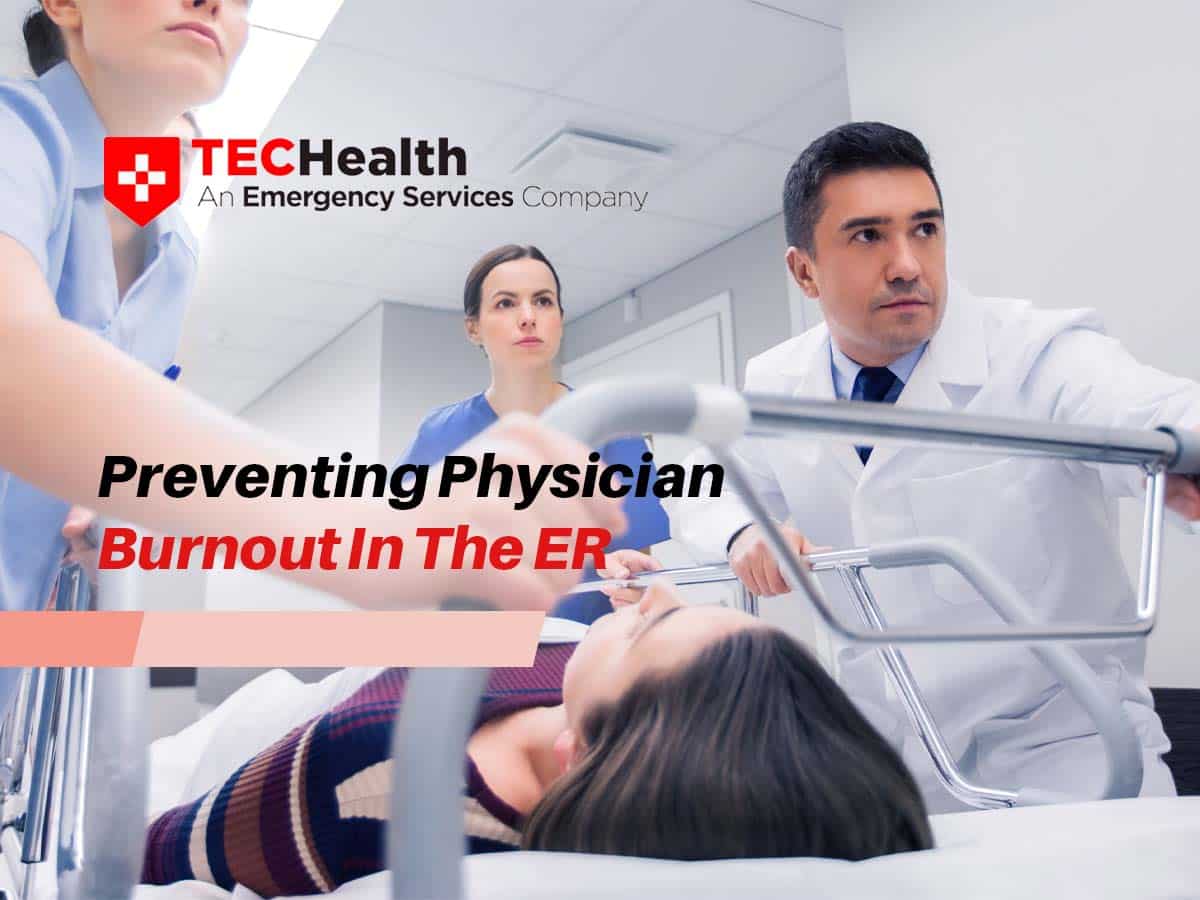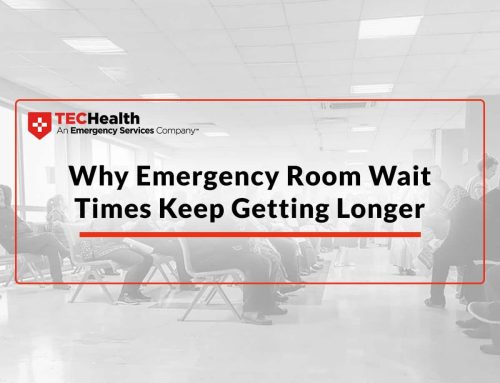
During the COVID-19 pandemic and now in its aftermath, burnout among healthcare providers of all stripes has reached epidemic levels in its own right. Diced by role and specialty, emergency medicine physicians are among the providers most likely to report at least one symptom of burnout. According to Medscape’s 2022 National Physician Burnout & Depression Report, 60% of emergency medicine physicians reported feeling burned out in 2021—up 13% from just two years prior. It’s a trend that is unsustainable.
Core To Competency
Emergency medicine physicians are equipped with a broad range of core competencies. Maintaining their well-being can and should be among them. Not doing so can lead to negative outcomes:
- Impacting patients – evidence suggests that physicians experiencing burnout are more likely to make an error in patient care.
- Impacting colleagues – physicians who step away from the profession due to burnout further limit healthcare resources, shifting the burden to other providers.
- Impacting physicians and families – issues with mood, mental health, feelings of dissatisfaction, and substance abuse are more common.
Is Burnout Beginning?
Most of the time, physician burnout is the result of a long grind (though major, negative events like a lawsuit or significant medical error can be a sudden trigger). Being able to recognize the signs early is crucial to heading off consequences at work and home. According to the American Academy of Family Physicians, these include:
- Low energy levels or exhaustion
- Loss of empathy for patients and colleagues (often includes cynicism or the need to constantly vent)
- Questioning the meaning of the work
- Becoming overly concerned about committing an error
- Losing the joy of practice and simply going through the motions until the end of a shift
Preventing Burnout While Practicing In The ER
A healthy work environment and self-care are the two most critical components to maintaining an adequate sense of well-being while practicing medicine, especially in the ER. These two factors are critical to helping manage the underlying cause of burnout: stress.
Thriving In Chaos
Providing care in the ER may be the most difficult task in health care. Although plenty of factors in the ER are beyond anyone’s control – especially in major trauma centers – there are elements that emergency medicine physicians can either manage or at least influence.
These include:
- Adequate resources – given the chance, choosing to practice in an ER that has the staff and tools needed to meet demand even when busy can keep physicians from being stretched too thin too often.
- Using support resources – allowing triage team members and advanced practice professionals to practice at the top of their license can help ease the burden. This also includes using available resources to master the full capabilities of the electronic health record and sharing the documentation burden.
- Focus on physician wellbeing – because it is so vital if an organization does not have explicit plans and processes to support physician wellbeing, that should raise red flags.
Personal Wellbeing
The path to maintaining well-being starts with some of the basic advice physicians across many specialties give patients every day yet is often ignored by physicians themselves:
- Maintain a balanced, healthy diet
- Exercise regularly
- Limit alcohol use
- Practice good sleep hygiene
Finding effective stress reduction techniques – whether it’s meditation, prayer, or getting into a mindfulness-based stress reduction program – is paramount. Emergency medicine physicians should not hesitate to reach out to a counselor to help with a stress reduction program or address other issues related to potential burnout.
Additionally, taking adequate time away from work is essential to reducing not only work-related stress but often to reducing stress at home. Home life also can be a pillar of the strong support system needed to prevent burnout.
Self-care is not like many emergency medicine physicians. But nurturing their well-being is intimately tied to the well-being of patients and the entire healthcare industry.




